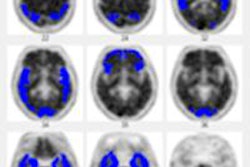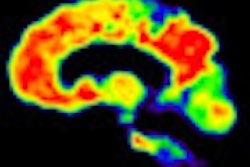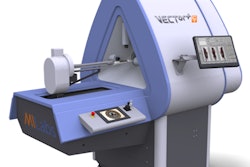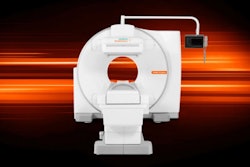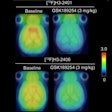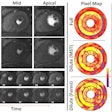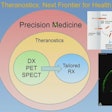PET images showed that highly educated individuals with mild cognitive impairment who later progressed to Alzheimer's disease coped better with the disease than individuals with a lower level of education, according to a study in the June issue of the Journal of Nuclear Medicine.
Specifically, PET illustrated how neural reserve and neural compensation both play a role in determining cognitive reserve. Cognitive reserve refers to the capacity of an adult brain to cope with brain damage and maintain a relatively preserved functional level.
The findings provide new insight into the functional mechanisms that mediate cognitive reserve in the early stages of Alzheimer's, according to lead author Dr. Silvia Morbelli, from the University of Genoa in Italy.
The study analyzed 64 patients with early-stage Alzheimer's disease and 90 control subjects who underwent brain FDG-PET scans. Participants were divided into one subgroup with a low level of education (42 controls and 36 Alzheimer's patients) and another subgroup with a high level of education (40 controls and 28 Alzheimer's patients).
The researchers then compared brain metabolism between education-matched groups of patients and controls, and also between highly and poorly educated Alzheimer's patients.
Those with Alzheimer's disease showed higher metabolic activity in the dorso-lateral prefrontal cortex, according to the researchers. The highly educated Alzheimer's patients exhibited more extended and significant correlations of metabolism within the right dorso-lateral prefrontal cortex and other brain regions when compared with the less educated Alzheimer's disease patients or even highly educated controls.
The results suggest that neural reserve and neural compensation are activated in highly educated early-stage Alzheimer's patients, the group concluded.





